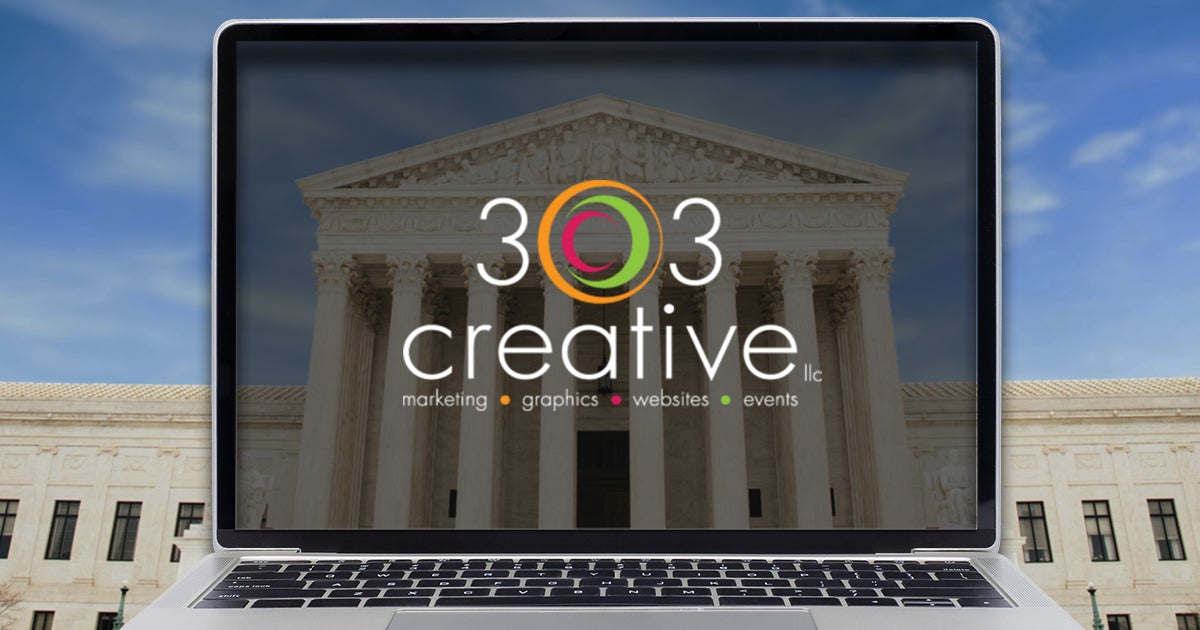
by Jorge Gomez • 6 min read
The U.S. Supreme Court recently announced it will hear 303 Creative LLC v. Elenis, a free speech case that could have major implications for religious liberty. This is a case being handled by our friends at the Alliance Defending Freedom.
It involves Lorie Smith, a Christian web designer from the Denver-area who declines to create wedding websites for same-sex couples, because of her religious beliefs. The case is expected to be heard during the Court’s next term, which begins in October.
This case resembles Masterpiece Cakeshop v. Colorado (2018). In that case, the Supreme Court ruled that state officials had been openly hostile to Christian baker Jack Phillips, who also declined to create custom cakes for same-sex weddings. The Court reaffirmed that the state cannot discriminate against Americans because of their religious beliefs.
Both business owners have been subject to the same coercive, “anti-discrimination” law in Colorado that effectively silences people of faith and forces them to conform to the cultural orthodoxy.
Masterpiece Cakeshop was a step in the right direction and handed a win to Jack Phillips. But the ruling was narrow. The Court punted the main free speech and religious liberty questions, namely, whether a baker (and similar creative professionals or artists) had a First Amendment right to decline engaging in expression that offended his or her beliefs.
National Review Senior Fellow Andrew McCarthy explained the limits of Masterpiece:
“In Roberts-Court style, instead of deciding that issue, which would have resulted in a sharply divided ruling, the Court opted for a more ostensibly collegial 7–2 ruling that the Colorado Civil Rights Commission had exhibited intolerably overt hostility. This was a hollow victory for Phillips since it assured that he’d continue to be harassed by the woke Left and its loyal bureaucrats. As he has been.”
Justice Anthony Kennedy, writing for the majority, concluded in Masterpiece: “The outcome in cases like this in other circumstances must await further elaboration in the courts.”
Given the Court previously dodged the deeper and more divisive questions, many Americans would think this new case could be more of the same. But there is cause for optimism.
It appears the justices want to “further elaborate” on these constitutional issues. The Supreme Court attached a short statement when it agreed to hear 303 Creative LLC. It read:
“The petition for a writ of certiorari is granted limited to the following question: Whether applying a public-accommodation law to compel an artist to speak or stay silent violates the Free Speech Clause of the First Amendment.”
It’s almost impossible to ignore how that this is indeed one of the most pressing issues of our lifetime, affecting millions of Americans. In recent years, we’ve witnessed an alarming rise in attacks against religious people in the marketplace. From cake artists to florists, photographers and designers, countless business owners are facing the threat of closure for operating in accordance with their religious beliefs.
One in a multitude of examples is First Liberty’s clients, Aaron and Melissa Klein. A state bureaucratic agency fined the Kleins $135,000—which bankrupted and forced them to close their family bakery Sweet Cakes by Melissa—because they declined to create custom cakes for same-sex weddings.
A favorable ruling for the Colorado web designer could be positive, as First Liberty fights the Sweet Cakes by Melissa case at the Oregon Supreme Court.
In that case, our legal team is making the argument that Americans should not be compelled by the government to create a message that conflicts with their religious beliefs—the same question the Supreme Court plans to address in 303 Creative LLC.
Additionally, we must remember the nation’s highest court only agrees to hear a select number of cases each year. It will only hear about 65 to 85 cases in a single term—about one to two percent of all the cases appealed to it. In other words, when the Court agrees to hear a case, it’s doing so for a reason.
This could mean—though it’s not guaranteed—the Court is reviewing 303 Creative LLC to fill in the missing pieces from the Masterpiece ruling.
Lastly, people of faith following this case must keep in mind the Supreme Court is different today than it was a few years ago. This is not the same Court that handed down the Masterpiece decision.
Justice Anthony Kennedy has been replaced by his former clerk, Justice Brett Kavanaugh. The late Justice Ruth Bader Ginsburg—who dissented because she believed the Christian baker should lose outright—has been replaced by Justice Amy Coney Barrett, who seems to be more sympathetic.
Justice Stephen Breyer will be replaced by one of President Biden’s nominees, but this shouldn’t change the balance of the Court as a whole. Even with a Biden appointee, the Court that will hear this case would still be comprised of a conservative majority.
If we opt for an optimistic outlook, we’re hopeful the Supreme Court will treat this case as an opportunity to issue a broader, more expansive decision protecting free speech and religious freedom.